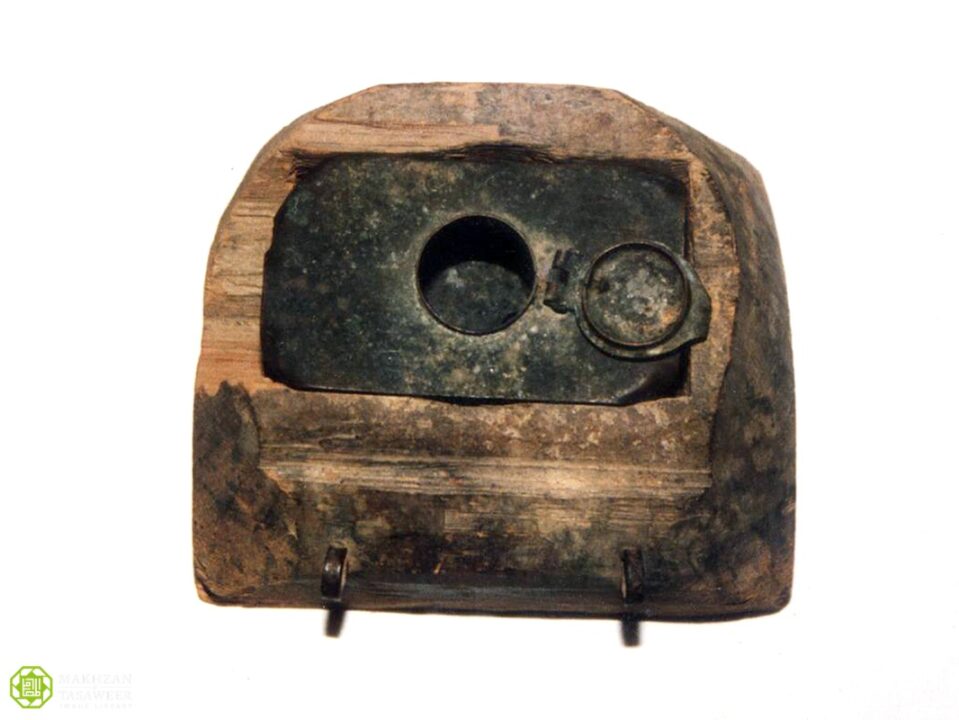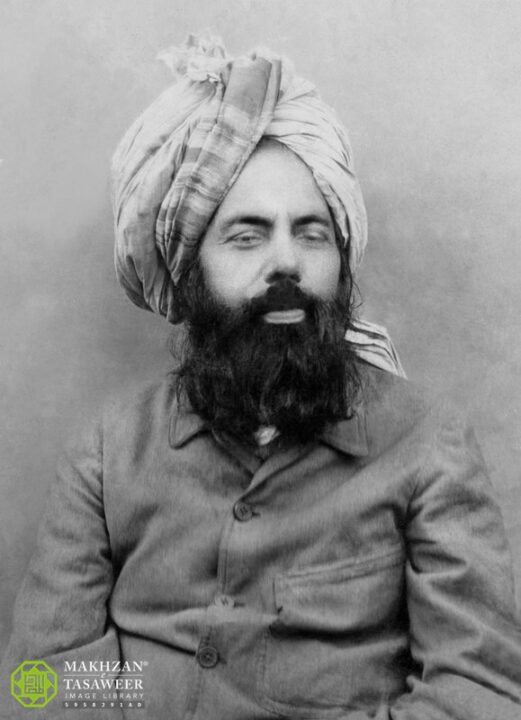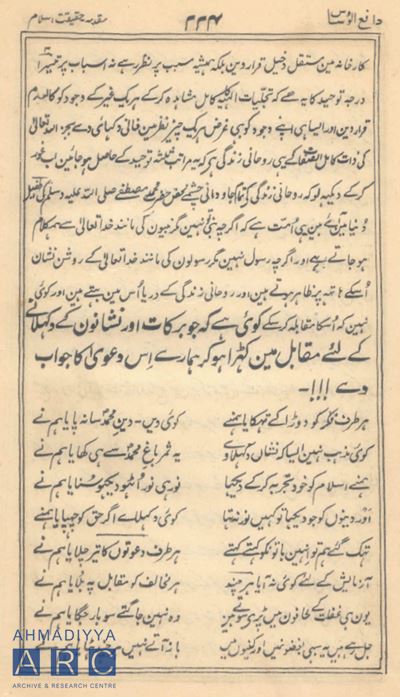Ata-ul-Haye Nasir, Al Hakam

Hazrat Mirza Ghulam Ahmadas of Qadian, the Promised Messiah and Mahdi, had a great love for Allah the Almighty and the Holy Prophet Muhammadsa. This overwhelming love is evident from each and every word of the books written by the Promised Messiahas. It is not only his prose that wears this crown, but his transcendental poetry too has the gold-dust of this love on its wings.
It is often thought that the Promised Messiahas wrote poetry as poets usually do, but to understand the stature of his poetics, one must know where in his works it has occurred.
In the ebb and flow of his mighty writings, on occasions when he felt that prose was not the best way to convey his message, his pen began to express his inspirations in poetic verse.
An allegation is often raised against the Promised Messiahas that as he wrote poetry, he cannot be a prophet of Allah, because poets are supposedly not in any way worthy of prophethood.
While the paragraphs above should suffice to answer the question, we take this opportunity to go into further detail.
Those who make such allegations seem to not know or remember that the Holy Prophet, peace and blessings of Allah be upon him, also said poetic couplets. Not only did he say poetic couplets, but he would sometimes ask his Companionsra to recite poetry for him. Moreover, poetry of some Prophetsas are also on record.
Allah the Almighty has explained in the Holy Quran that there are two types of poets, as he states in the Holy Quran:
وَ الشُّعَرَآءُ یَتَّبِعُہُمُ الۡغَاوٗنَ
اَلَمۡ تَرَ اَنَّہُمۡ فِیۡ کُلِّ وَادٍ یَّہِیۡمُوۡنَ
وَ اَنَّہُمۡ یَقُوۡلُوۡنَ مَا لَا یَفۡعَلُوۡنَ
اِلَّا الَّذِیۡنَ اٰمَنُوۡا وَ عَمِلُوا الصّٰلِحٰتِ وَ ذَکَرُوا اللّٰہَ کَثِیۡرًا وَّ انۡتَصَرُوۡا مِنۡۢ بَعۡدِ مَا ظُلِمُوۡاوَ سَیَعۡلَمُ الَّذِیۡنَ ظَلَمُوۡۤا اَیَّ مُنۡقَلَبٍ یَّنۡقَلِبُوۡنَ
“And [as for] the poets – it is the erring ones who follow them. Dost thou not see how they wander distracted in every valley, and that they say what they practise not? – Save those who believe and do good works, and remember Allah much, and retaliate [only] after they are wronged. And the wrongdoers will soon know to what place of return they shall return.” (Surah al-Shu‘ara, Ch.26: V.225-228)
These verses show that such poetry is permissible that is written with the purpose of proclaiming the Oneness of Allah the Almighty, describing the distinctive features of the religion of Islam, inviting people to goodness and preaching Islam. What is discouraged is poetry of worldly nature with no good objectives.
It is mentioned in a hadith that the Holy Prophetsa said:
إِنَّ مِنَ الشِّعْرِ حِكَمًا
“In some poetry there is wisdom.” (Sunan Ibn Majah, Kitab al-Adab, Hadith 3756)
The Arabs had a great tendency towards poetry in the time of the Holy Prophetsa and even before his advent. And in the form of poetic couplets, they had the custom of expressing their thoughts. In such a situation, Allah the Almighty revealed His Word (the Holy Quran) with such eloquence and rhetoric, that, upon hearing it, the opponents became helpless and said that it was the word of a poet and not from any God. In response, Allah the Almighty revealed this verse:
وَّ مَا ہُوَ بِقَوۡلِ شَاعِرٍ قَلِیۡلًا مَّا تُؤۡمِنُوۡنَ
“And it is not the word of a poet; little is it that you believe!” (Surah al-Haaqqah, Ch.69: V.42)
The Promised Messiahas states:
“In the time of our Prophet, peace and blessings of Allah be upon him, the eloquence and rhetoric was at its peak, so the Holy Quran was also revealed to him in the same manner, as a great miracle. This manner was adopted because poets were considered magicians and their speaking quality had such an influence that whatever they wanted to do, they would have achieved it by reciting a few couplets. […] They had the tongue which was able to bring bravery and courage in them. In every case, they used poetry and they were the recipients of:
فِیْ کُلِّ وَادِِ یَّھِیْمُوْنَ
“Therefore, according to the need of that age, Allah the Almighty sent His Word and expressed His miracle through this Word.” (Al Hakam, 24 April 1902, p. 7)
In response to a question regarding poetry, the Promised Messiahas stated:
“The Holy Prophetsa also, upon hearing about a melodious person, asked him to recite few poetic couplets and said:
رَحِمَکَ اللہُ
“‘May Allah have mercy on you.’
“Each person, to whom he would say these words, would become a martyr. So, this person was also martyred as soon he went to the battlefield. After the demise of the Holy Prophetsa, a Companionra recited a few poetic couplets. Hazrat Umarra stopped him from reciting it in the mosque. The Companionra got angry and said, ‘Who are you to stop me? I have recited poetic couplets here in this same mosque, in front of the Holy Prophetsa and he did not forbid me.’ Hazrat Umarra did not argue with this.” (Malfuzat [1988], Vol. 3, p. 162)

A person’s objection was presented to the Promised Messiahas that “Mirza Sahib writes poetry”. Upon this, the Promised Messiahas replied:
“The Holy Prophetsa has also recited poetry himself. There is not much difference between reciting and writing. Some Companionsra of the Holy Prophetsa were poets too. Moreover, qasaaid (encomiums) by Hazrat Aishara, Hazrat Imam Hassanra and Hazrat Imam Hussainra are well known. Hazrat Hassan bin Thabitra wrote a qaseedah upon the death of the Holy Prophetsa.
“Syed Abdul Qadirrh has also written qasaaid. You cannot provide any proof about any Companionra that they did not say a little or a lot of poetry, but the Holy Prophetsa did not forbid anyone. Many verses of the Holy Quran are in poetic metre.” (Ibid)
A person came to the Promised Messiahas and expressed that poets had been condemned in the last few verses of Surah al-Shu‘ara. The Promised Messiahas replied:
“Have a look at it again. There, Allah the Almighty condemns the immoral and abusive poets, and the believer poets have been exempted by Allah Himself. The whole of Psalms is poetic. The poems of Jeremiahas, Solomonas and Mosesas are found in the Torah. This proves that poetry is not a sin as long as it is not a poem of immorality and abusive words. I have received revelations from Allah the Almighty, some of them are in verse and some in the form of couplets.” (Ibid, p. 163)
As mentioned at the start, the Holy Prophetsa also said poetic verses. Here are some examples:
Hazrat Jundubra states that during a battle, the Holy Prophetsa injured his finger and he read the following couplet addressing his finger:
ھل انت الا اصبع دمیت
و فی سبیل اللہ ما لقیت
Meaning, “You are just a finger that has been injured and suffered in the way of Allah. (Sahih Muslim, Book of Jihad)
Then, the Holy Prophetsa recited the following couplet in the Battle of Hunain:
اَنَا النَّبِیُّ لاَ کَذِب
اَنَا ابنُ عَبدِ المُطَّلِب
Meaning, “I am a prophet. I am not a liar. I am the son of Abdul Mutalib.”
In addition to the Holy Prophet’ssa poetry, there are traditions related to the poetry by his Companionsra and Khulafa-e-Rashideenra as well.
The poetry of Hazrat Hassan bin Thabitra has a special place in the history of Islam. When mentioning his poetry, it is necessary to write about his poetic couplets, which he recited on the death of the Holy Prophetsa. The Promised Messiahas also loved these couplets of Hazrat Hassanra. As it is mentioned:
“Once, the Promised Messiahas was walking alone in the mosque in the neighbourhood of his house, known as Masjid Mubarak, and was humming something. Tears flowed from his eyes. A sincere friend came from outside and heard that he was reciting the couplet of Hazrat Hassan bin Thabitra which he had written on the demise of the Holy Prophetsa:
کُنتَ السَّوادَ لِنَاظِرِی فَعَمِیَ عَلَیَّ النَّاظِرُ
مَنْ شَآءَ بَعْدکَ فَلْیَمُتْ فَعَلَیْکَ کُنْتُ اُحَاذِرُ
“O my Prophetsa! You were the pupil of my eye. So, my eyes are now blind after your death; Now, whosoever dies after you may die. For I only feared your death.”
The narrator states that when I saw the Promised Messiahas weeping like this and walking alone in the mosque, I got worried and asked what the matter was and what shock Huzooras had received. The Promised Messiahas said, “I was reciting this couplet of Hassan bin Thabitra at that time and I wished that I had been the one who [originally] recited this couplet.” (Seerat-e-Tayyabah, by Hazrat Mirza Bashir Ahmadra, pp. 22-23)
Such is true poetry that has an impact on every intellect and is not limited to a certain time. True poetry has a lasting effect through all times and casts a spell on every pious heart. Poetry is never forbidden in Islam, provided it is written for a good purpose and not for worldly gains.
When we look at the poetry of the Promised Messiahas, we find that the purpose of his poetry was to proclaim the Oneness of Allah the Almighty, express love for the Holy Prophet Muhammadsa, draw on the beauty of the Holy Quran and the announcement of his claims. In his poetic works, the Promised Messiahas expressed love for Allah the Almighty and His Messengersa, which is unmatched and unparalleled.
The Promised Messiahas has explained why he had included poetry in his writings. He says:
“The need to add poetry in my writings arose because there are people of certain natures, that if they are told any truth in a thousand paragraphs in prose, they do not understand, but if the same concept is conveyed in a poetic couplet, then the poetic couplet has a lot of impact on them and they are stunned by listening to the couplet and immediately accept the truth. An example of this is like that doctor, who, upon seeing that medicine is no longer useful to the patient orally, suggests an injection for the patient. And by this means, the ailment of the patient is relieved and healed. So this is the case with our poetry and sukhan as well. And it has been experienced that, for some people, poetic form of text is more effective than the one in prose. That is why the Holy Quran has been revealed in verses that also rhyme. If that were not the case, I would have no need to write poetic couplets.
“Many were presented with diverse arguments, but they did not work. However, when they read poetic couplets, they greatly influenced the same deniers and immediately, they accepted the truth.” (Al Hakam, 28 August-7 September 1938, p. 2)
At another place, the Promised Messiahas states:
“The main purpose is to instil truth within hearts. I have no interest in poetry otherwise.” (Qadian ke Arya aur hum, Ruhani Khazain, Vol. 20, p. 457)
In one of his poems, the Promised Messiahas states:
کچھ شعر و شاعری سے اپنا نہیں تعلق
اس ڈھب سے کوئی سمجھے بس مدّعا یہی ہے
“I have no interest in poetry. But I use this way, and my purpose is, so that people may understand.” (Qadian ke Arya aur hum, Ruhani Khazain, Vol. 20, p. 459)
The importance of the Promised Messiah’sas poetry

Allah the Almighty revealed the following to the Promised Messiahas:
در کلامِ تو چیزے است کہ شعراء رادراں دخلے نیست۔ کَلامٌ اُفصِحَت مِن لَّدُن رَّبٍّ کَرِیمٍ
“Your discourse has been made eloquent by the Benevolent Lord. There is something in that which you say, to which the poets have no access. (The Philosophy of Divine Revelation, p. 123)
Allah the Almighty gave the titles of Sultan-ul-Qalam to the Promised Messiahas and to his pen, Zulfiqar-e-Ali. His pen showed so many signs by the help of the Almighty Allah that will be remembered till the day of Judgment.
The collection of his Urdu poetry is named Durr-e-Sameen, while his Persian poetry is also published under the name of Durr-e-Sameen Farsi. The poetry that he wrote prior to his claim is named Durr-e-Maknoon, also known as Kalaam-e-Ahmad. His Arabic poems are published under the title Al-Qasaaid-ul-Ahmadiyya. These include qasaaid [Arabic poems] related to the love of Allah the Almighty, love of the Holy Prophetsa and sacrifices and pious lives of the Companionsra.
Hazrat Khalifatul Masih IIIrh states:
“The Promised Messiahas, in his prose and poems, in his speeches and discourses and in his books, in fact in every way, has always emphasised the point that the spirit of Islam lies in taqwa [righteousness]. The Promised Messiahas states in his couplet:
سنو ہے حاصل اسلام تقویٰ
خدا کا عشق مے اور جام تقویٰ
‘Listen! The essence of Islam is taqwa! Love of God is the wine and taqwa is the goblet.’” (Friday Sermon, 16 December 1966)
Hazrat Khalifatul Masih IIIrh further states:
“Read the books of the Promised Messiahas frequently, especially Durr-e-Sameen.” (Al Fazl, 11 October 1970)
Hazrat Khalifatul Masih IVrh stated:
“May Allah the Almighty shower countless blessings upon the Promised Messiahas who closed all the paths of arrogance and opened the path of humility. Each of his couplets, each of his misras [lines of poetry], each and every word is full of truth. And the reality is that the poetry of the Promised Messiahas is in itself proof of his truthfulness. If a person of a pious nature listens to this poetry, it is not possible for them to refrain from testifying to the truthfulness of its author.
“Amazingly pure and pious emotions. The soul becomes intrigued while hearing this poetry, which is immersed in love [of Allah the Almighty and the Holy Prophetsa].
“While the poetry was being recited, I was thinking of those Ahmadi youths who say, ‘How should we do da‘wat ilallah [calling unto Allah]? We cannot remember the arguments. We do not have the capability to debate. We do not know Arabic. We do not know how to deduce arguments.’ I thought to myself, what more do they need to remember than remembering the poetry of the Promised Messiahas, reciting it like darweshes from one town to another and preaching it and informing the world that he has come whose coming is linked with your salvation.
“Such effective poetry, such pure poetry, such wise poetry; poetry which consists of the praise of Allah the Almighty; poetry, about which one must say:
آدمی زاد تو کیا چیز فرشتے بھی تمام
مدح میں تیری وہ گاتے ہیں جو گایا ہم نے
“‘Not only Human beings, but all of the angels sing in your praise what I have sung.’
“The fact of the matter is that when the Promised Messiahas would have uttered this couplet, surely, the angels in heaven must have also recited this couplet along with him. They must have been reciting all the praises of Allah the Almighty along with him, what he expressed in love of Allah the Almighty.” (Mash‘al-e-Rah, Vol. 3, pp. 43-44)
In a nutshell, the Promised Messiahas used poetry along with prose in his “Jihad by the pen” for the propagation of Islam. The teachings which he gave in the form of poetry also gave a new life to many dead souls.
In this regard, Hazrat Musleh-e-Maudra states in his couplet:
تیری تعلیم میں کیا جادو بھرا ہے مرزا
جس سے حیوان بھی انسان ہوئے جاتے ہیں
“How magical is your teaching, O Mirza; the spell of which makes beasts turn into humans.”

